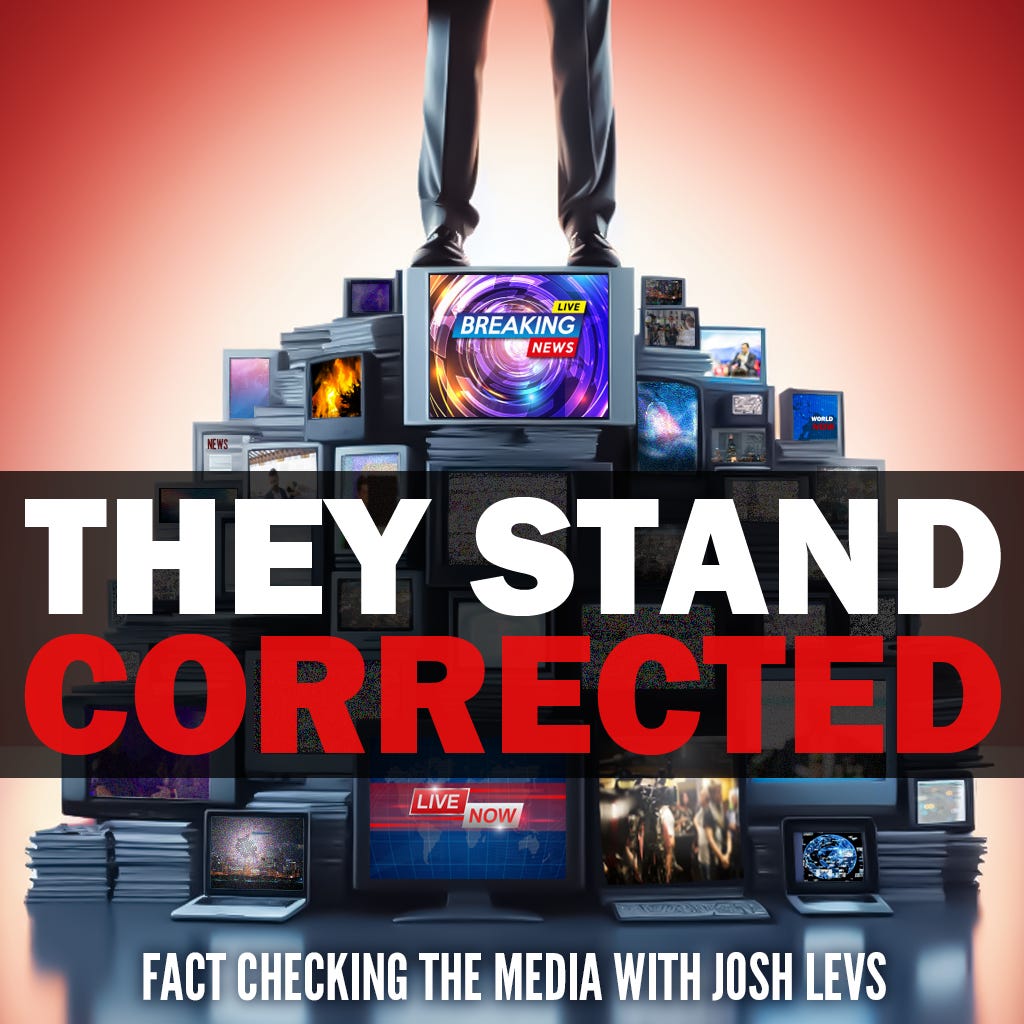In crackdown on women’s health, the White House gets an assist from legacy media
When news confusion puts lives at risk
In early June, a slew of reports spread the same false information. “Trump administration ends emergency abortion requirement for hospitals,” the Washington Post published in a headline that is still up despite the fact that it’s wrong. PBS had a similar headline. MSNBC claimed, “The Trump administration is rescinding a Biden-era policy that required hospitals to provide emergency abortions to women whose health is in peril.”
This didn’t happen. But in getting people to think it happened, the media has been helping groups that want to crack down on women’s access to health care. It’s yet another example of legacy media getting big things wrong, fueling dangerous movements, and vulnerable people paying the price.
In the new episode of my podcast They Stand Corrected, which fact checks the news, Dara Kass joined me to help explain. She’s an emergency physician and former regional director at the U.S. Department of Health and Human Services. (She recently wrote a piece on another topic for The Contrarian.)
What actually happened
At issue is EMTALA, the Emergency Medical Treatment and Labor Act of 1986, which is referred to as an “anti-dumping law.” It required hospitals that take Medicare to give patients a minimum level of health care regardless of their ability to pay. Before this law, Kass said, people could show up at private hospitals “bleeding from a gunshot wound or in active labor,” and hospitals could kick them out, telling them to drive elsewhere for care, such as a public hospital.
In 2022, when the Supreme Court overturned Roe v. Wade, several states rushed to ban abortions in as many situations as possible. They had “trigger laws” on the books, ready to take effect. Some states did not immediately make clear that an abortion to save the life of the mother remained legal, Kass said. For the first time, “we saw a single procedure that could be used in a life-saving moment be illegal.”
So the Biden administration issued a memo to clarify that under EMTALA, hospitals were still required to provide emergency pregnancy terminations when the mother’s life was at stake. It “was an attempt by the Biden administration to remind mostly providers on the ground and hospital systems that your duty to treat is still prevalent. Continue to save lives, and we have your back,” Kass explained.
Crucially, with this memo the Biden administration was not establishing a new requirement. In fact, the memo said its purpose was to “restate existing guidance.”
When the Trump administration revoked that memo recently (in late May), it was not revoking the legal requirement; it was revoking the memo that restated the requirement. The administration itself acknowledged that about two weeks later, saying “EMTALA is clear and the law has not changed.”
The perils of journalistic failures
By then, damage was done. Big media had helped disseminate the idea that emergency abortions to save the woman’s life are no longer required under EMTALA.
Several groups tried to get the misinformation to stop, as Fierce Healthcare noted. Fatima Goss Graves, president and CEO of the National Women’s Law Center, said in a statement, “To be clear: this action doesn’t change hospitals' legal obligations, but it does add to the fear, confusion, and dangerous delays patients and providers have faced since the fall of Roe v. Wade.”
Just like the rest of us, doctors, nurses, and other health workers follow the news. It’s likely that some across the country saw these false reports and are now unsure what to do. They might refuse life-saving treatments for fear of being prosecuted under state laws.
Meanwhile, women facing these situations might avoid going to hospitals in red states, Kass said. Convinced they won’t get the care they need nearby, they might decide to drive a long distance to another state. “However many hours of that drive might make the difference between you living and dying.”
This might have been a result that some in the Trump administration wanted. The president can’t change EMTALA. That would take an act of Congress. But, sadly, he can count on the media’s inaccuracy in the rush to report.
In this era, when people are overwhelmed with content pouring into their phones all day long, headlines and brief news updates are often all they hear about any given story. This is why false and misleading headlines are particularly impactful.
The problems aren’t over. Activists on social media still have links and screenshots to send around, hoping healthcare providers will believe the EMTALA requirements are gone.
This is what happens when legacy media rush to produce clickbait and “teases” to get you to watch, read, or listen, rather than operate with a three-word oath all journalists should take: report truth only.
Josh Levs is host of They Stand Corrected, the podcast and newsletter fact-checking the media. Find him at joshlevs.com.







Thanks for running my latest piece, The Contrarian. News failures endanger lives all the time. As I explain in the new episode of They Stand Corrected, this is what happens inside newsrooms when agendas, ideologies and a rush to jump on a bandwagon lead the way instead of facts, context, and thought! https://theystandcorrected.substack.com/
Josh, Thank You For This Important Correction. Lori